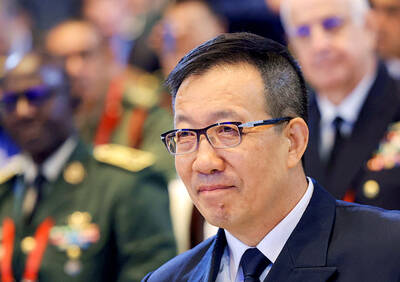Thousands of Muslims poured into the streets of Kashmir overnight, demanding independence from India hours after Pakistan called on the UN to stop what it characterized as gross human rights violations in the divided Himalayan region.
Pakistan’s statement drew a sharp rebuke from India yesterday, which called the comments “deeply objectionable.”
Nearly six weeks of unrest in India’s part of Kashmir have pitted the region’s Muslim majority against its Hindu minority and left at least 33 people dead, many of them protesters shot during violent clashes with police and soldiers.
Villages have been attacked, police stations torched and, in at least one town, security forces have been ordered to shoot on sight any protesters violating a curfew.
The protests were sparked by a plan to transfer land to a Hindu shrine in Kashmir, which was quickly abandoned.
But in the weeks since, the unrest has unleashed pent up tensions between Kashmir’s Muslims and Hindus, threatening to snap the bonds between India and its only Muslim-majority state.
There are also growing fears that the violence could drive a wedge between Hindus and Muslims in other parts of India, where Hindu nationalist political parties have been organizing rival protests and calling for the government to give the land back to the shrine.
The protests overnight in Srinagar, Kashmir’s main city, followed rumors that security forces were breaking into houses there and beating up women and children.
“This is a question of our honor, come out of your homes,” said announcements played over the public address systems at various mosques in Srinagar.
The people of Srinagar — a mountain town once famed for its cool summer weather and the houseboats that ply the lake in its center — responded by the thousands, pouring into the streets and chanting “Long Live Pakistan!” and “We Want Independence!”
Perhaps more than anything seen in the last six weeks, it’s those sentiments that are most worrying to India.
Kashmir has been divided between India and Pakistan since 1948 and is at the center of their six-decade rivalry.
The insurgents want to see the part of the region that is controlled by India merged with Pakistan or given independence.
On Wednesday, the Pakistani foreign ministry called on the UN to step in and curb “the gross violation of human rights” in Kashmir.
Pakistani President Pervez Musharraf followed up a few hours later, saying: “I strongly condemn the human rights violation and the suppression on these oppressed people.”
India’s reaction was angry.
“To call for international involvement in the sovereign internal affairs of India is gratuitous, illegal and only reflects reversion to a mindset that has led to no good consequences for Pakistan in the past,” the foreign ministry said in a statement released soon after Musharraf’s remarks.

DEADLOCK: Putin has vowed to continue fighting unless Ukraine cedes more land, while talks have been paused with no immediate results expected, the Kremlin said Russia on Friday said that peace talks with Kyiv were on “pause” as Ukrainian President Volodymyr Zelenskiy warned that Russian President Vladimir Putin still wanted to capture the whole of Ukraine. Meanwhile, US President Donald Trump said that he was running out of patience with Putin, and the NATO alliance said it would bolster its eastern front after Russian drones were shot down in Polish airspace this week. The latest blow to faltering diplomacy came as Russia’s army staged major military drills with its key ally Belarus. Despite Trump forcing the warring sides to hold direct talks and hosting Putin in Alaska, there

North Korea has executed people for watching or distributing foreign television shows, including popular South Korean dramas, as part of an intensifying crackdown on personal freedoms, a UN human rights report said on Friday. Surveillance has grown more pervasive since 2014 with the help of new technologies, while punishments have become harsher — including the introduction of the death penalty for offences such as sharing foreign TV dramas, the report said. The curbs make North Korea the most restrictive country in the world, said the 14-page UN report, which was based on interviews with more than 300 witnesses and victims who had

COMFORT WOMEN CLASH: Japan has strongly rejected South Korean court rulings ordering the government to provide reparations to Korean victims of sexual slavery The Japanese government yesterday defended its stance on wartime sexual slavery and described South Korean court rulings ordering Japanese compensation as violations of international law, after UN investigators criticized Tokyo for failing to ensure truth-finding and reparations for the victims. In its own response to UN human rights rapporteurs, South Korea called on Japan to “squarely face up to our painful history” and cited how Tokyo’s refusal to comply with court orders have denied the victims payment. The statements underscored how the two Asian US allies still hold key differences on the issue, even as they pause their on-and-off disputes over historical

BEIJING FORUM: ‘So-called freedom of navigation advocated by certain countries outside the region challenges the norms of international relations,’ the minister said Chinese Minister of National Defense Dong Jun (董軍) yesterday denounced “hegemonic logic and acts of bullying” during remarks at a Beijing forum that were full of thinly veiled references to the US. Organizers said that about 1,800 representatives from 100 countries, including political, military and academic leaders, were in Beijing for the Xiangshan Forum. The three-day event comes as China presents itself as a mediator of fraught global issues including the wars in Ukraine and Gaza. Addressing attendees at the opening ceremony, Dong warned of “new threats and challenges” now facing world peace. “While the themes of the times — peace and development —